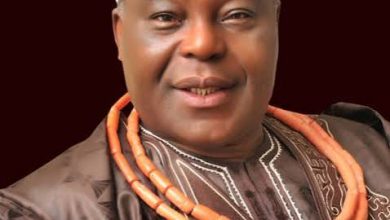Obasanjo explains why he spurned El-Rufai as successor

Former President Olusegun Obasanjo has opened up about his decision to reject the nomination of Malam Nasir El-Rufai, former Governor of Kaduna State, as his successor.
Speaking in Abeokuta, the Ogun State capital, the elder statesman disclosed that the suggestion came through former Minister of Aviation, Osita Chidoka, but he chose not to act on it.
Obasanjo recounted that Chidoka had pitched El-Rufai as a potential successor during the transition period of his administration, yet he dismissed the proposal, citing the need for further maturity on El-Rufai’s part.
“I did not yield to the pressure. Later, when he asked why I had not agreed, I told him that El-Rufai needed to mature,” the former president said, adding that time later proved him correct as El-Rufai’s performance improved significantly.
Chidoka, who was the keynote speaker at the event, reminisced about how El-Rufai had recommended him to Obasanjo early in his career at the age of 34, which eventually paved the way for his appointment as Corps Marshal of the Federal Road Safety Corps.
Obasanjo, however, noted that Chidoka had never disclosed that he had also pushed for El-Rufai as a successor, prompting the former president to comment wryly on the omission.
While explaining his stance, Obasanjo lauded the contributions of Chidoka, El-Rufai, and other officials for their dedication and distinctive qualities that helped drive the government’s achievements.
Speaking on the broader theme of leadership, Obasanjo emphasized that character, exposure, experience, and formal training are essential to good governance.
“It is only in politics that I discovered there is no formal training for leadership. Even in criminal circles, apprenticeship exists,” he said.
Chidoka echoed similar concerns, attributing Nigeria’s persistent challenges to weak institutions and a reliance on political excuses.
“Leadership is measured not by rhetoric or personal charisma but by the systems it establishes,” he stated.
He stressed that moral conviction must translate into rules, routines, and institutions that ensure competence and limit corruption.
The event drew several prominent figures, including Senator Shuaibu Salis of Ogun Central, the Olowu of Owu Kingdom, Oba Saka Matemilola, the Olota of Ota, Oba Adeyemi Obalanlege, and former Ogun First Lady, Mrs. Olufunsho Amosun.
In reflecting on the discourse, Obasanjo underscored the importance of preparation and maturity for leadership roles, suggesting that political appointments should consider experience and readiness above all else.



